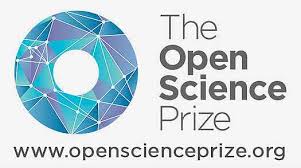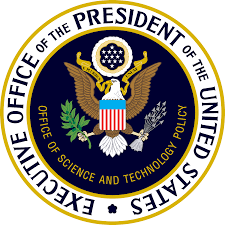National Institutes of Health
See the following -
Many Antidepressant Studies Found Tainted by Pharma Company Influence
The latest study, published in the Journal of Clinical Epidemiology, which evaluated 185 meta-analyses, found that one third of them were written by pharma industry employees. “We knew that the industry would fund studies to promote its products, but it’s very different to fund meta-analyses,” which “have traditionally been a bulwark of evidence-based medicine,” says John Ioannidis, an epidemiologist at Stanford University School of Medicine and co-author of the study. “It’s really amazing that there is such a massive influx of influence in this field.”
- Login to post comments
Open Science Prize Announces Epidemic Tracking Tool as Grand Prize Winner
 A prototype online platform that uses real-time visualization and viral genome data to track the spread of global pathogens such as Zika and Ebola is the grand prize winner of the Open Science Prize. The international team competition is an initiative by the National Institutes of Health, in collaboration with the Wellcome Trust and the Howard Hughes Medical Institute (HHMI). The winning team, Real-time Evolutionary Tracking for Pathogen Surveillance and Epidemiological Investigation, created its nextstrain.org prototype to pool data from researchers across the globe, perform rapid phylogenetic analysis, and post the results on the platform’s website...
A prototype online platform that uses real-time visualization and viral genome data to track the spread of global pathogens such as Zika and Ebola is the grand prize winner of the Open Science Prize. The international team competition is an initiative by the National Institutes of Health, in collaboration with the Wellcome Trust and the Howard Hughes Medical Institute (HHMI). The winning team, Real-time Evolutionary Tracking for Pathogen Surveillance and Epidemiological Investigation, created its nextstrain.org prototype to pool data from researchers across the globe, perform rapid phylogenetic analysis, and post the results on the platform’s website...
- Login to post comments
Open Source Machine Learning Tool Could Help Choose Cancer Drugs
 The selection of a first-line chemotherapy drug to treat many types of cancer is often a clear-cut decision governed by standard-of-care protocols, but what drug should be used next if the first one fails? That's where Georgia Institute of Technology researchers believe their new open source decision support tool could come in. Using machine learning to analyze RNA expression tied to information about patient outcomes with specific drugs, the open source tool could help clinicians chose the chemotherapy drug most likely to attack the disease in individual patients. In a study using RNA analysis data from 152 patient records, the system predicted the chemotherapy drug that had provided the best outcome 80 percent of the time.
The selection of a first-line chemotherapy drug to treat many types of cancer is often a clear-cut decision governed by standard-of-care protocols, but what drug should be used next if the first one fails? That's where Georgia Institute of Technology researchers believe their new open source decision support tool could come in. Using machine learning to analyze RNA expression tied to information about patient outcomes with specific drugs, the open source tool could help clinicians chose the chemotherapy drug most likely to attack the disease in individual patients. In a study using RNA analysis data from 152 patient records, the system predicted the chemotherapy drug that had provided the best outcome 80 percent of the time.
- Login to post comments
RSNA Launches International COVID-19 Open Radiology Database
 The Radiological Society of North America (RSNA) and the RSNA COVID-19 AI Task Force today announced the launch of the RSNA International COVID-19 Open Radiology Database (RICORD). RICORD is envisioned as the largest open database of anonymized COVID-19 medical images in the world. More than 200 institutions around the world have expressed their interest in participating. The database will include supporting clinical information and expert annotations. It will be freely available to the global research and education communities.
The Radiological Society of North America (RSNA) and the RSNA COVID-19 AI Task Force today announced the launch of the RSNA International COVID-19 Open Radiology Database (RICORD). RICORD is envisioned as the largest open database of anonymized COVID-19 medical images in the world. More than 200 institutions around the world have expressed their interest in participating. The database will include supporting clinical information and expert annotations. It will be freely available to the global research and education communities.
- Login to post comments
White House Call to Action to the Tech Community on New Open Access Machine Readable COVID-19 Dataset
 Today, researchers and leaders from the Allen Institute for AI, Chan Zuckerberg Initiative (CZI), Georgetown University's Center for Security and Emerging Technology (CSET), Microsoft, and the National Library of Medicine (NLM) at the National Institutes of Health released the COVID-19 Open Research Dataset (CORD-19) of scholarly literature about COVID-19, SARS-CoV-2, and the Coronavirus group. Requested by The White House Office of Science and Technology Policy, the dataset represents the most extensive machine-readable Coronavirus literature collection available for data and text mining to date, with over 29,000 articles, more than 13,000 of which have full text.
Today, researchers and leaders from the Allen Institute for AI, Chan Zuckerberg Initiative (CZI), Georgetown University's Center for Security and Emerging Technology (CSET), Microsoft, and the National Library of Medicine (NLM) at the National Institutes of Health released the COVID-19 Open Research Dataset (CORD-19) of scholarly literature about COVID-19, SARS-CoV-2, and the Coronavirus group. Requested by The White House Office of Science and Technology Policy, the dataset represents the most extensive machine-readable Coronavirus literature collection available for data and text mining to date, with over 29,000 articles, more than 13,000 of which have full text.
- Login to post comments